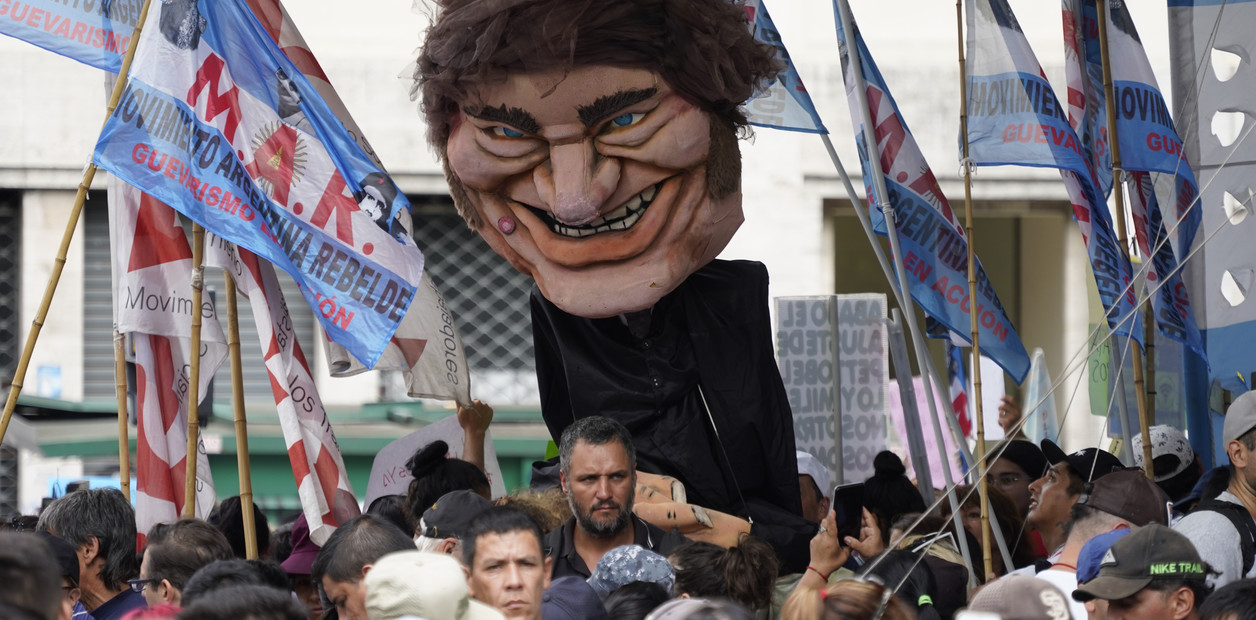
Published 14/05/2024 19:01 | Edited 05/14/2024 22:30
Dissatisfaction with the Argentine government is growing. On the 9th, the country went through a general strike in protest against President Javier Milei and his measures that have led the population to starve.
The representative protest led by the General Confederation of Labor (CGT) was understood as a strong message to the government to change fiscal adjustment policies. Milei’s actions have already caused a real drop of 31% in budgetary items for retirement and pensions, 87% in public works, 39% in transport subsidies, 76% in transfers to the provinces, 18% in cuts to universities and 13% in social programs.
In text by Ryan Dubé and Silvina Frydlewsky, published in The Wall Street Journal, what Milei’s “economic shock” has caused to the population is highlighted. In the report of a retired woman, she explains that her retirement no longer covers her expenses, which is why she stopped eating beef, buying some medicines and using public transport, with many areas no longer receiving government subsidies and becoming more expensive, making the unfeasible use for the common population.
Read more: For trade unionists, the strike in Argentina was strong and with social support
According to the Catholic University, cited in the text, 60% of Argentines are in poverty, and this number was 44% in December, when Milei took office.
In another part of the report, it is stated that even in conservative places, Milei’s supporters are tired. Residents of the agricultural center near Córdoba still support the current president, according to the mayor of Los Surgentes, Gabriel Pellizzon, but it is necessary for Milei to slow down, as people cannot pay the bills and eat chicken burgers instead of beef burgers. , says the mayor.
“Fiscal Shock”
Milei and his supporters rushed to celebrate the drop in inflation in April, below 10%, while the population faces difficulties. The first fiscal surplus in 16 years, also in April, was trumpeted by the anarcho-capitalist president, even though the population’s bills are rising.
According to economists consulted, the measures that led to these results are temporary and unsustainable, and to continue at this pace the government must implement other changes so that the economy is stimulated. To achieve results, the Milei government paralyzed public works, cut resource transfers to provinces (states), in addition to reducing salary and pension increases previously indexed to inflation.
In this sense, the Argentine president is trying to approve his Law in the Senate with around 230 articles that brings about the privatization of state-owned companies, makes labor laws more flexible and resumes income tax. This is the reduced version of your first project with 660 articles.
Even if Milei achieves this victory, the understanding is that his support with the population begins to slip through his hands as the population faces, every day, a greater recession and becomes distant from basic food and health goods.
Source: vermelho.org.br

